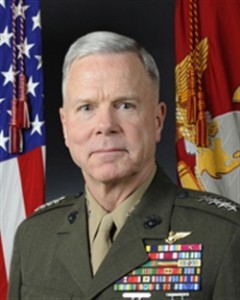Karzai: NATO Caused Lot of Suffering and Death, Yet Afghanistan Is Not Secure
[youtuber youtube=’http://www.youtube.com/watch?v=-_zHbMa0iJU’]
Last week, we learned that Hamid Karzai’s strong objection to the US continuing to control death squads inside Afghanistan after the NATO mission officially concludes at the end of 2014 seemed likely to scuttle the US and Afghanistan finalizing the bilateral security agreement that is under negotiation. In a further sign that the agreement now appears to be dead, Karzai unleashed some of his strongest criticism of NATO and the US to date in an interview with BBC:
“On the security front the entire Nato exercise was one that caused Afghanistan a lot of suffering, a lot of loss of life, and no gains because the country is not secure,” he said.
He said Nato had incorrectly focused the fight on Afghan villages rather than Taliban safe havens in Pakistan.
/snip/
“I am not happy to say that there is partial security. That’s not what we are seeking. What we wanted was absolute security and a clear-cut war against terrorism,” Mr Karzai said of the Nato campaign.
Unsurprisingly, I have already started seeing grumblings about how ungrateful Karzai is. But really, how could anyone honestly expect him to be grateful for “a lot of suffering, a lot of loss of life”, when these losses have not achieved the stated mission of security?
Because of these bluntly honest remarks, Karzai also will be attacked by US apologists for his corruption. But his response to the widespread corruption in his government also is sobering and in need of consideration by the chattering classes inside the Beltway:
“Our government is weak and ineffective in comparison to other governments, we’ve just begun,” Mr Karzai said. “But the big corruption, the hundreds of millions of dollars of corruption, it was not Afghan. Now everybody knows that. It was foreign.
“The contracts, the subcontracts, the blind contracts given to people, money thrown around to buy loyalties, money thrown around to buy submissiveness of Afghan government officials, to policies and designs that the Afghans would not agree to. That was the major part of corruption,” he said.
“Goodness”, the chattering class will claim, “we never could have anticipated that all those investments in Afghan security could have turned into opportunities for looting”. Yeah, nobody (and that makes John Sopko and his crew into definite nobodies) could have expected all that money to find its way out of the country and into bank accounts controlled by Afghan bigwigs.
Coverage in the New York Times of Karzai’s remarks has this to say about Karzai’s observation that if an agreement cannot be reached, NATO forces “can leave”: Read more →

